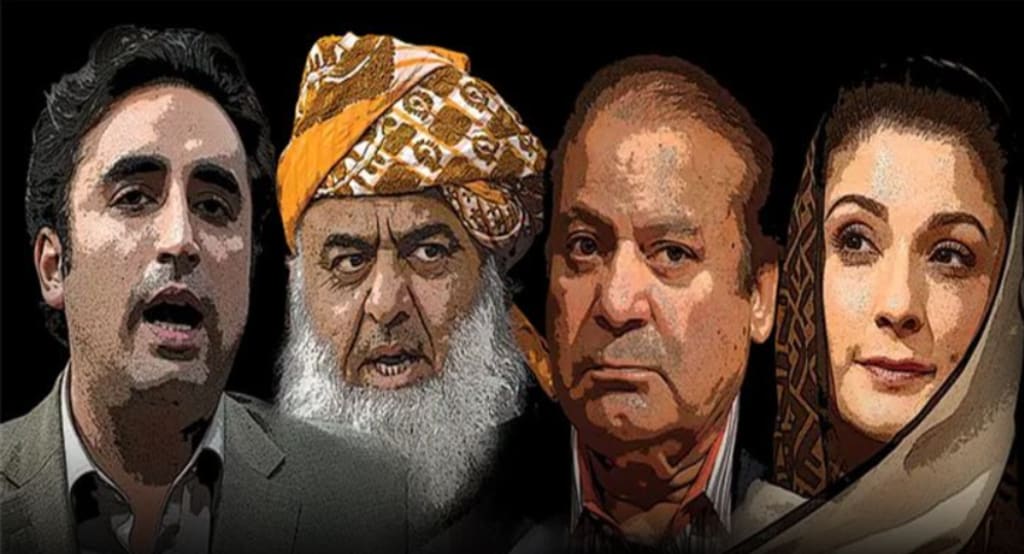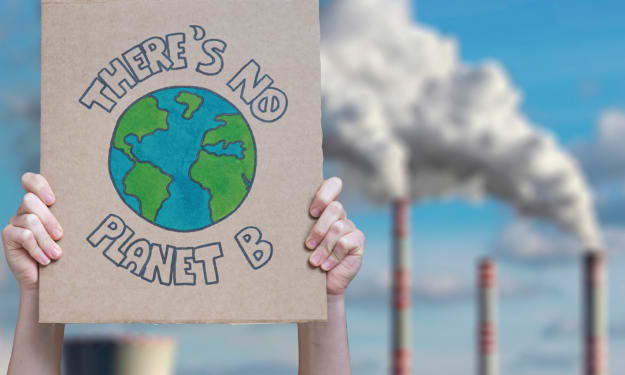Pakistan and Dirty Politics
Politicians and Establishment Relationships that Destroyed Pakistan

Pakistan is a country that has been plagued by political corruption and instability for decades. Since gaining independence in 1947, the country has been ruled by a series of military dictatorships and corrupt civilian governments. The result of this has been a culture of dirty politics, where those in power use their positions to enrich themselves at the expense of the country and its people.
One of the primary drivers of Pakistan's dirty politics is the country's powerful military. The military has played a significant role in Pakistani politics since the country's inception, often staging coups to overthrow civilian governments when it feels its interests are threatened. While the military has occasionally allowed civilian governments to rule, it has always maintained significant influence behind the scenes.
This influence has led to a culture of corruption and cronyism, where those in power use their positions to enrich themselves and their allies. Nepotism and favoritism are rampant in Pakistan, with government positions often going to those with connections rather than merit. This has led to a situation where Pakistan's government is often staffed by incompetent and corrupt individuals, who are more interested in lining their own pockets than serving the country.
Another driver of Pakistan's dirty politics is the country's weak judiciary. While Pakistan has a robust legal system on paper, in practice, the judiciary is often powerless to challenge those in power. This has led to a situation where those who engage in corrupt practices are rarely held accountable for their actions. Even when cases are brought against corrupt officials, they are often dragged out for years, allowing those in power to continue their malfeasance with impunity.
Pakistan's political parties have also played a significant role in the country's dirty politics. Rather than focusing on policies and the needs of the people, many parties are more concerned with maintaining their own power and influence. This has led to a situation where political parties are often more interested in political maneuvering than serving the interests of their constituents.
One of the most glaring examples of Pakistan's dirty politics is the Panama Papers scandal. In 2016, leaked documents from a Panamanian law firm revealed that several prominent Pakistanis, including Prime Minister Nawaz Sharif and his family, had offshore accounts and assets that had not been declared to the Pakistani government. The scandal rocked the country and led to widespread protests calling for Sharif's resignation.
While Sharif was eventually forced to step down, the scandal highlighted the extent of corruption and cronyism in Pakistani politics. It also underscored the weakness of Pakistan's judiciary, as Sharif was initially able to avoid prosecution due to legal loopholes and political maneuvering.
Another example of Pakistan's dirty politics is the ongoing issue of sectarian violence. Pakistan has long been plagued by violence between different religious and ethnic groups, with the government often accused of turning a blind eye to these issues. The country has also been accused of supporting extremist groups, both as a means of exerting influence in the region and as a way of distracting from domestic issues.
The result of all of this is a country that is often viewed as one of the most corrupt and unstable in the world. Pakistan's government is widely perceived as ineffective and corrupt, with little faith in the ability of the government to solve the country's many problems. This has led to a brain drain, with many of Pakistan's best and brightest leaving the country in search of better opportunities elsewhere.
In conclusion, Pakistan's dirty politics are a major impediment to the country's development and stability. The country's powerful military, weak judiciary, and corrupt political parties have created a culture of corruption and cronyism that has left many Pakistanis feeling disillusioned and powerless. Unless meaningful steps are taken to address these issues, it is unlikely that Pakistan will be able to achieve the stability and prosperity that its people deserve.
About the Creator
Enjoyed the story? Support the Creator.
Subscribe for free to receive all their stories in your feed. You could also pledge your support or give them a one-off tip, letting them know you appreciate their work.





Comments
There are no comments for this story
Be the first to respond and start the conversation.